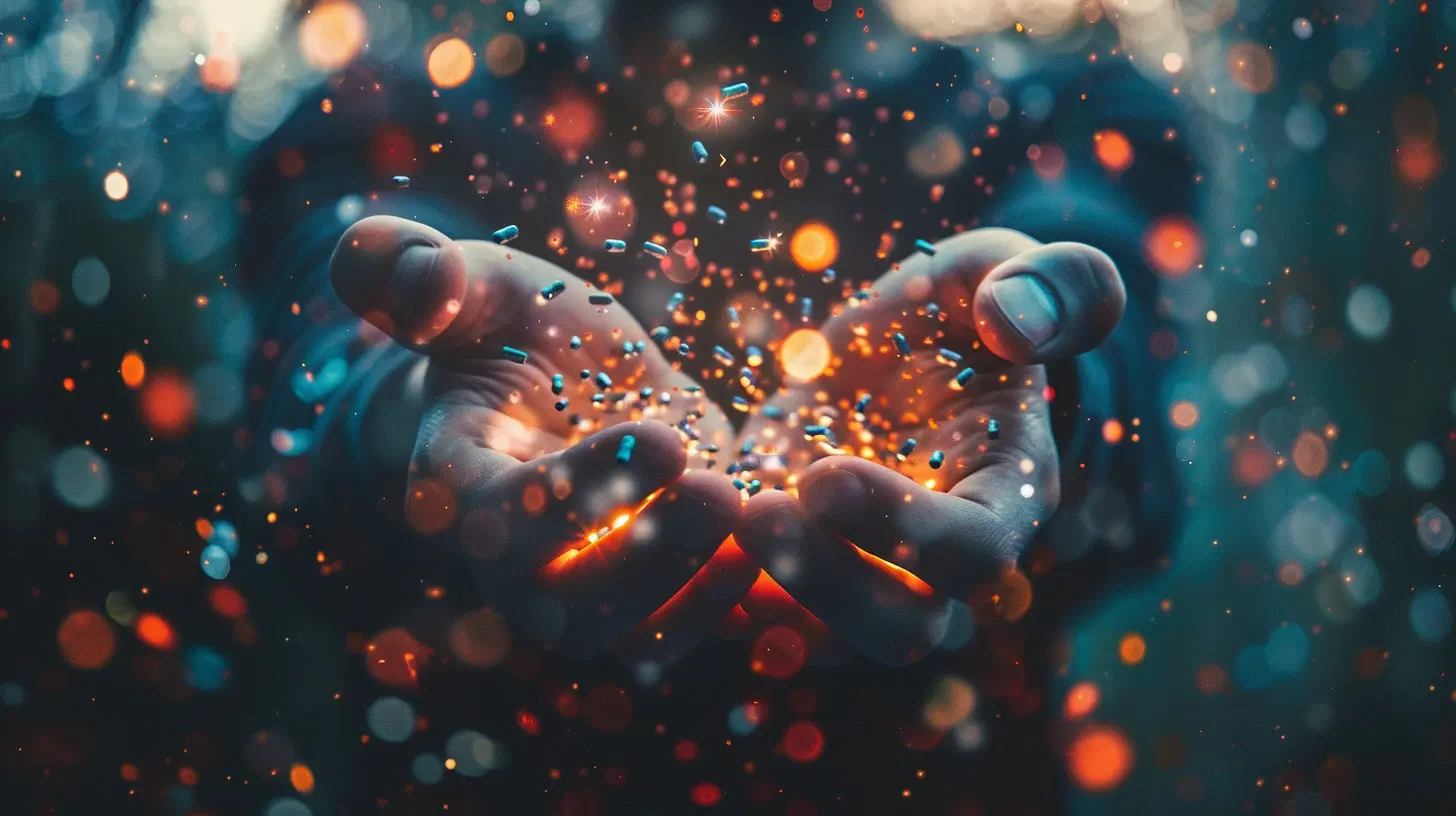The Placebo Effect: Exploring the Psychological Power of Expectation
22 August 2025
Introduction
Alright, let’s talk about something truly mind-blowing—the placebo effect. You know, that strange phenomenon where people experience real improvements just because they think they’re receiving treatment, even when it's nothing more than a sugar pill or a saline injection? Yeah, that.
Now, if you’ve ever wondered exactly how powerful your mind is, buckle up because we’re diving deep into the fascinating world of expectation, belief, and the sheer trickery of our brains. Spoiler alert: your mind is playing Jedi mind tricks on your body more often than you'd like to admit. 
What Exactly Is the Placebo Effect?
So, let’s break it down. The placebo effect happens when someone experiences a genuine physical or psychological improvement after receiving a treatment that has absolutely no therapeutic value. That’s right—zilch. No active ingredients, no real medicine, just pure belief wrapped in a convincing package.The magic here? It’s all about expectation. If you think a treatment will work, your brain might just make it so. And, honestly, that's a little terrifying but also ridiculously cool. 
How Does the Placebo Effect Work?
Our brains are wired to expect things to happen based on previous experiences, conditioning, and even societal influences. When we take what we believe is medicine, our brain kicks into action. Let’s break it down a bit further:1. The Brain’s Chemical Response
Believe it or not, when you think you're getting real treatment, your brain actually releases helpful chemicals like dopamine and endorphins—the body’s natural painkillers. These sneaky little neurotransmitters can literally make you feel better, even when the treatment is totally fake.2. The Power of Conditioning
Remember Pavlov and his drooling dogs? The placebo effect works in a similar way. If you've taken real medicine before and it helped, your brain forms a connection. So, next time you pop a pill—whether it's legit or not—your body reacts as if it’s the real deal.3. Expectations Shape Reality
Humans are predictably irrational. When we expect something to work, our brain sometimes tweaks reality to match our expectations. It's like when you’re convinced a $100 bottle of wine tastes better than a $10 one, even if it's actually the same wine.
The Placebo Effect in Medicine
Doctors have been aware of the placebo effect for ages, and it's often used in clinical trials to test how effective a new drug really is. But here’s where things get even juicier—it’s not just limited to sugar pills.1. Fake Surgeries? Yep, They Work Too.
Imagine going under the knife for a serious operation, waking up, and feeling amazing—only to later find out that the surgeon never actually did anything. Sounds wild, right? But several studies have shown that patients who thought they had undergone surgery experienced significant improvements, even though no real procedure was performed.2. Placebos Work Even When You Know They’re Fake
You’d think the placebo effect would crumble once someone realizes they’ve been duped. Nope! In some experiments, participants were told they were getting a placebo, and guess what? They still felt an improvement. The brain is seriously next-level.3. The More Convincing, The Better
Apparently, placebos work even better when they look impressive. Fancy packaging? Higher success rate. Injections? More effective than pills. Basically, the more effort goes into tricking the brain, the more it plays along.
The Nocebo Effect: The Evil Twin
If placebos can heal, can they also harm? Oh, absolutely. Enter the nocebo effect—the dark side of expectation.Ever read the side effects on a medication and suddenly start feeling every single one? That’s the nocebo effect in action. If you expect something to make you sick, your brain might just grant your twisted wish.
In one study, patients who were told a fake pill would cause nausea started feeling queasy—despite the pill being nothing more than a sugar tablet. The mind is a powerful, but sometimes cruel, trickster.
The Placebo Effect in Everyday Life
This psychological magic extends far beyond medicine. The placebo effect sneaks into our daily lives in ways you probably never even noticed.1. Fitness Gains Without the Extra Sweat
Believe it or not, some studies have shown that people who think they’re getting more exercise actually see physical benefits—even when their activity levels haven’t changed. Just thinking you’re working out harder can make your body respond as if you are. Mind = blown.2. Beauty Products That Work (or Do They?)
Ever bought an expensive skincare product and noticed instant improvements? Hate to break it to you, but a good chunk of that glow might just be the placebo effect. If you expect it to work, your brain can enhance the way you perceive your results.3. Brain-Boosting Supplements? Maybe Not.
From memory-enhancing vitamins to "smart drugs," many cognitive-enhancing supplements rely more on belief than actual science. If you think you’re sharper after taking them, you might perform better—thanks to the placebo effect, not the pill itself.Why This Matters
Now, you might be thinking, Okay, cool party trick, but why should I care? Here’s why:1. The Power of Belief is Real – Your mindset can physically change your body. That’s no small thing.
2. Don’t Underestimate the Mind-Body Connection – What you expect can shape your reality, for better or worse.
3. It’s a Reminder to Be Aware of Biases – Whether in medicine, fitness, or daily life, our expectations heavily influence outcomes.
Understanding the placebo effect isn’t just fun—it’s a cheat code for life. If you can harness the power of belief, you might just find yourself feeling healthier, happier, and maybe even a little smarter.
Final Thoughts
The placebo effect is proof that sometimes, the most powerful medicine isn’t in a bottle—it’s in your mind. Whether it's pain relief, enhanced performance, or even just feeling better about yourself, expectation plays a massive role in shaping reality.The real question is: how can you use this trickery to your advantage? Maybe it’s time to start believing in yourself a little more. Who knows? Your brain might just make it happen.
all images in this post were generated using AI tools
Category:
Psychological TheoriesAuthor:

Nina Reilly
Discussion
rate this article
1 comments
Alanna McKay
This article beautifully highlights the fascinating interplay between mind and body. It’s a reminder of how powerful our expectations can be!
September 1, 2025 at 3:19 AM

Nina Reilly
Thank you! I'm glad you found the article insightful. The mind-body connection is indeed a powerful force!


